![]()
The Words of the Chai Family
|
|
The Words of the Chai Family |
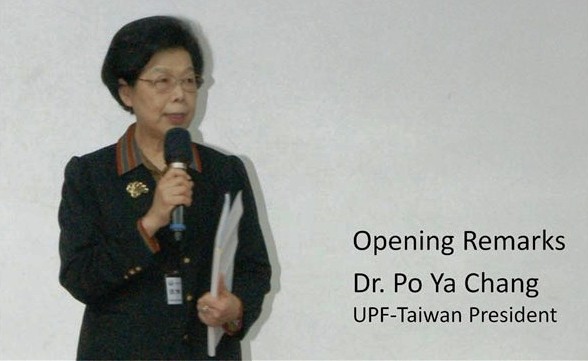
Taipei, Taiwan -- The first General Assembly for the 5th UPF term, on March 29, 2014, included reports from 2013, elections of Board members, appointment of Ambassadors for Peace, inauguration of the Taiwan Clergy Leadership Conference and Taiwan Inter-religious Peace Council, and two lectures.
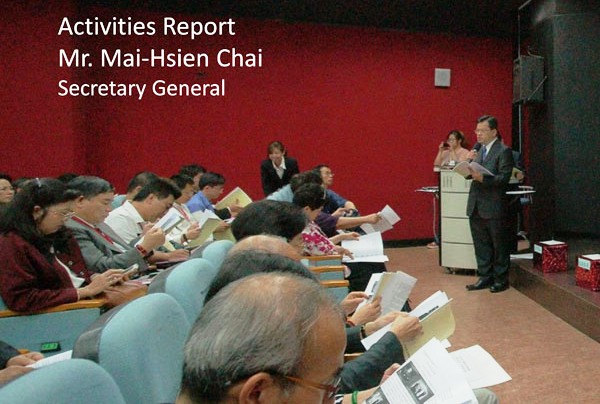
The assembly was held at National Taiwan Normal University, Taipei. Board members are elected for three-year terms; thus, the fourth term ended on March 29, and an election was held to choose the 5th term UPF-Taiwan Board members. Twenty-one members of the Board of Directors and seven members of the Board of Supervisors were elected.
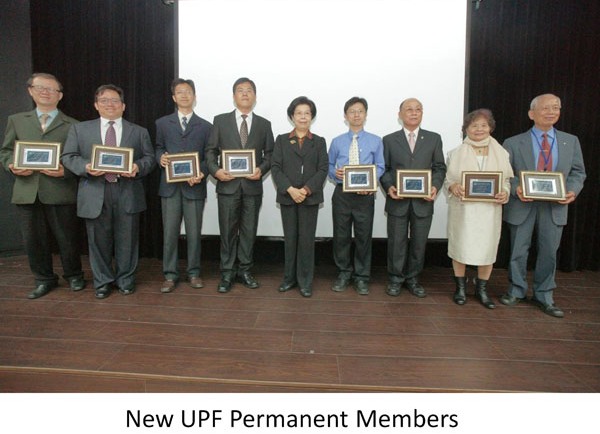
UPF regards inter-religious collaboration as the major factor in achieving world peace. In Taiwan, oriental religions like Taoism and Buddhism have played major roles in stabilizing the traditional culture and spiritual needs in society. However, more and more people have come to recognize that the traditional value of goodness is facing strong challenges from immorality and the free-sex culture. Therefore, the collaboration of religious leaders standing together to confront social problems is needed. For this reason, UPF-Taiwan launched the inaugural assembly of Taiwan Clergy Leadership Conference and Taiwan Inter-religious Peace Council during UPF-Taiwan's 5th Term General Meeting.
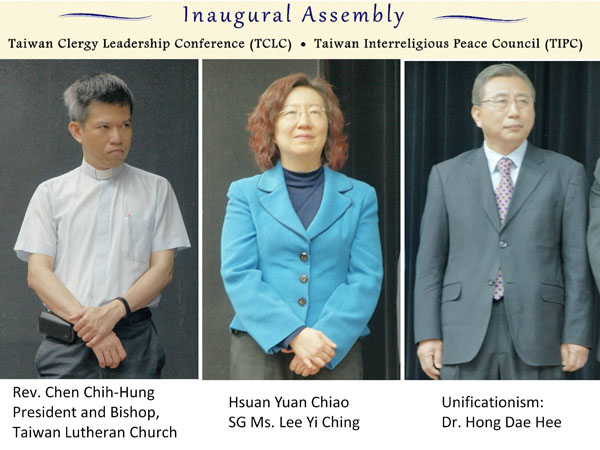
Nine religious leaders representing eastern and western religions were invited to attend the inaugural assembly. It began with a ceremonial pouring of water into a common bowl, an invocation, and concluded with hitting a gong. It was a significant day for UPF-Taiwan, signifying a commitment to inter-religious collaboration for the sake of promoting peace and goodness.
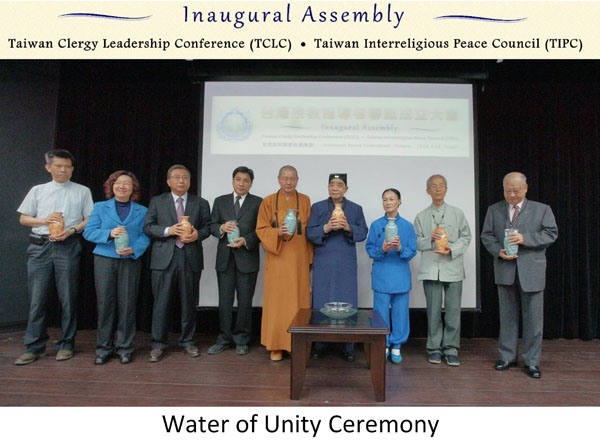
UPF-Taiwan invited Dr. Cheng-tian Kuo, a scholar specializing in political and religious studies, to deliver a lecture on that day. He is a distinguished professor from the Department of Political Science and also a professor at the Graduate Institute for Religious Studies at the National Chengchi University, Taiwan. He spoke on the topic "Democratic Prophets and Priests during Taiwan's Democratization." He described the contribution of religious groups, especially Protestant Christian and Buddhist, in Taiwan, giving the historical background of the influence of religious groups on politicians of both the ruling and opposition parties and after Taiwan's political change from statism to democracy in 1987. In contrast to the general view of separation between state and religion, he suggested that religion can play a role of checks and balances.
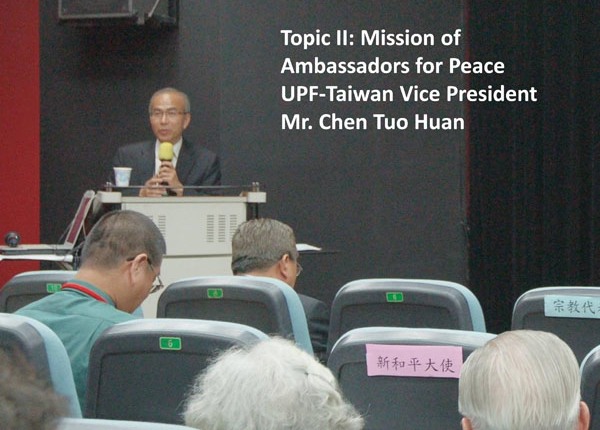
The vice president of UPF-Taiwan also delivered a lecture on the role of Ambassadors for Peace and gave a clear explanation of the UPF founder's vision for creating a peaceful world based on encouraging marriages between people of different faiths and cultures.